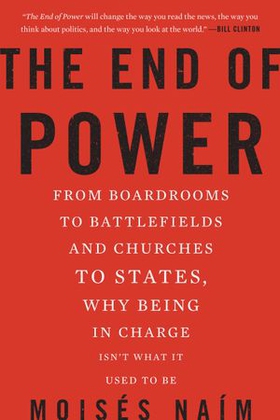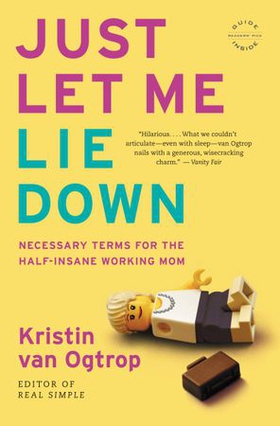
Legg til i ønskeliste
Les gratis utdrag
The End of Power ebok
119,-
The provocative bestseller explaining the decline of power in the twenty-first century -- in government, business, and beyond.br> Power is shifting -- from large, stable armies to loose bands of insurgents, from corporate leviathans to nimble start-ups, and from presidential palaces to public squares. But power is also changing, becoming harder to use and easier to lose. In The End of Power, award-winning columnist and former Foreign Policy editor MoiséNaÃilluminates the struggle between once-…
Undertittel
From Boardrooms to Battlefields and Churches to States, Why Being In Charge Isn't What It Used to Be
Forlag
Basic Books
Utgitt
28 april 2017
Sjanger
Språk
English
Format
epub
DRM-beskyttelse
LCP
ISBN
9780465065684
The provocative bestseller explaining the decline of power in the twenty-first century -- in government, business, and beyond.
br> Power is shifting -- from large, stable armies to loose bands of insurgents, from corporate leviathans to nimble start-ups, and from presidential palaces to public squares. But power is also changing, becoming harder to use and easier to lose. In The End of Power, award-winning columnist and former Foreign Policy editor MoiséNaÃilluminates the struggle between once-dominant megaplayers and the new micropowers challenging them in every field of human endeavor. Drawing on provocative, original research and a lifetime of experience in global affairs, NaÃexplains how the end of power is reconfiguring our world.
"The End of Power will . . . change the way you look at the world." -- Bill Clinton
"Extraordinary." -- George Soros
"Compelling and original." -- Arianna Huffington
"A fascinating new perspective . . . NaÃmakes eye-opening connections." -- Francis Fukuyama
br> Power is shifting -- from large, stable armies to loose bands of insurgents, from corporate leviathans to nimble start-ups, and from presidential palaces to public squares. But power is also changing, becoming harder to use and easier to lose. In The End of Power, award-winning columnist and former Foreign Policy editor MoiséNaÃilluminates the struggle between once-dominant megaplayers and the new micropowers challenging them in every field of human endeavor. Drawing on provocative, original research and a lifetime of experience in global affairs, NaÃexplains how the end of power is reconfiguring our world.
"The End of Power will . . . change the way you look at the world." -- Bill Clinton
"Extraordinary." -- George Soros
"Compelling and original." -- Arianna Huffington
"A fascinating new perspective . . . NaÃmakes eye-opening connections." -- Francis Fukuyama














